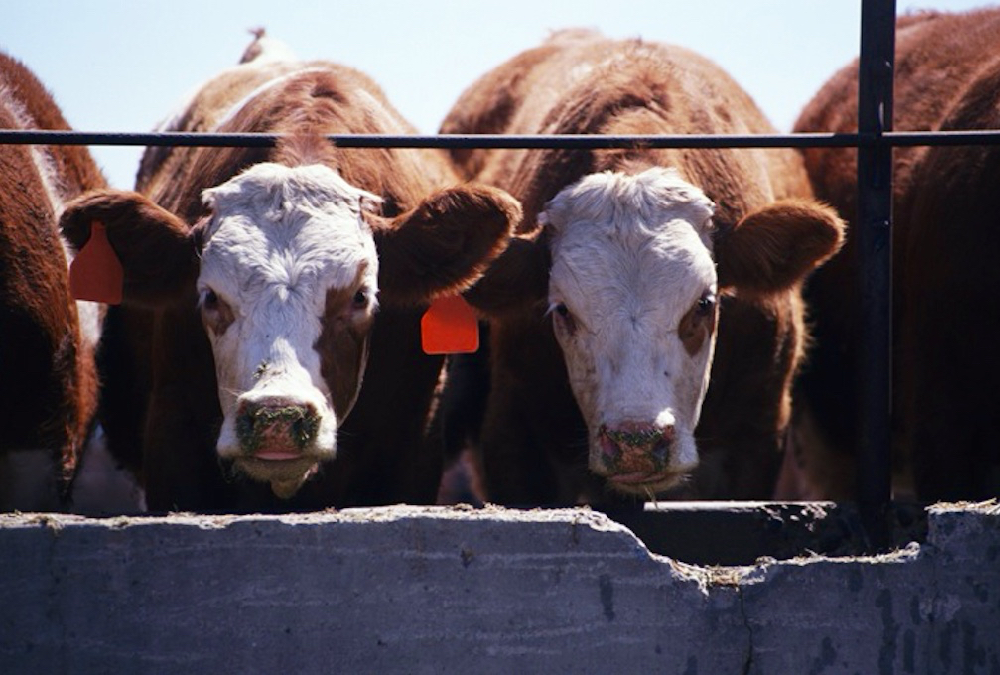In a time when activists regularly sneak into dairy, hog and chicken barns to film alleged livestock abuse, Manitoba doesn’t have an organization dedicated to farm animal welfare.
The Manitoba Farm Animal Council dissolved in 2010, after commodity groups decided they would rather encourage and promote animal care on their own.
Alberta, Saskatchewan and Ontario, the other major livestock producing provinces, have either a farm animal council or a farm and food care group that represents the broader industry on animal care matters.
Manitoba livestock producers have opted for a different model. They formed a Provincial Animal Care Committee in 2013 that includes commodity group representatives, provincial veterinarians and Canadian Food Inspection Agency officials. The committee meets three times a year to share information on animal care practices.
Read Also

U.S. livestock: Profit-taking pressures cattle futures
Cattle futures on the Chicago Mercantile Exchange were weaker on Friday, with chart-based positioning a feature as the market continued…
“It’s kind of a think-tank group. They don’t have a public outreach component,” said Melinda German, general manager of Manitoba Beef Producers.
“It’s not that groups within Manitoba are not working on these issues. (We) just have chosen to do it in a different way.”
However, the committee doesn’t have a website and doesn’t conduct advertising campaigns to inform the public about livestock care in the province.
Brenda Bazylewski, communications and public relations director for Manitoba Egg Farmers, said the animal care committee is distinct from a farm animal council, but producer groups like the structure.
“There are no fees. There are no hired staff people and no overhead with a structure of bricks and mortar,” said Bazylewski, who chairs the committee.
“I think this is a really good model, and for us in Manitoba it’s working really well.”
Bazylewski said there are no plans to revive the Manitoba Farm Animal Council.
A particular commodity group would respond to the crisis if an activist group released a provocative video or if a high profile investigation was held into animal abuse at a farm.
“If there was an issue with the humane treatment of hens, for example, people would come to our organization (for answers), but they would also go to poultry specialists that are separate from our industry.”
Other provinces have farm animal councils or similar organizations partly because the groups operate at an arm’s length from the livestock industry.
In theory, that projects more credibility when it comes to messages around farm animal care.
Joe Stookey, a professor with the University of Saskatchewan’s Western College of Veterinary Medicine who specializes in animal behaviour and animal welfare, said commodity groups fund farm animal councils and farm and food care organizations in Canada.
He’s not convinced they have more credibility than producer groups.
“In some sense they are a vocal representative of the commodity groups that support them.”
Nonetheless, someone needs to broadcast information about farm animal care, Stookey said.
“If it’s never up there on the billboard, how do you get the message out that farmers are caring about their livestock?”
Stookey said Manitoba has a good reputation on animal welfare compared to other provinces.
The provincial government employs its own animal protection officers, who enforce animal care regulations. In other provinces, the Society for the Prevention of Cruelty to Animals or other non-profit organizations respond to complaints and enforce animal welfare laws.
Stookey said the Manitoba model is more reliable and stable.
“Spas are always holding a bake sale every weekend to raise money,” he said.
“Manitoba seems to have taken responsibility on as a government … of policing of abuse.”
Still, Stookey said commodity groups and farm animal councils should engage people who are concerned about farm animal welfare.
People from the agricultural industry dominate the boards of organizations and sub-committees responsible for farm animal care. Contrary voices and perspectives are necessary to move the industry forward on animal welfare practices.
“On coffee row, you surround yourself with like-minded people,” Stookey said.
“You all believe you’re doing just wonderful. But are you in tune or in touch with the general public?”















